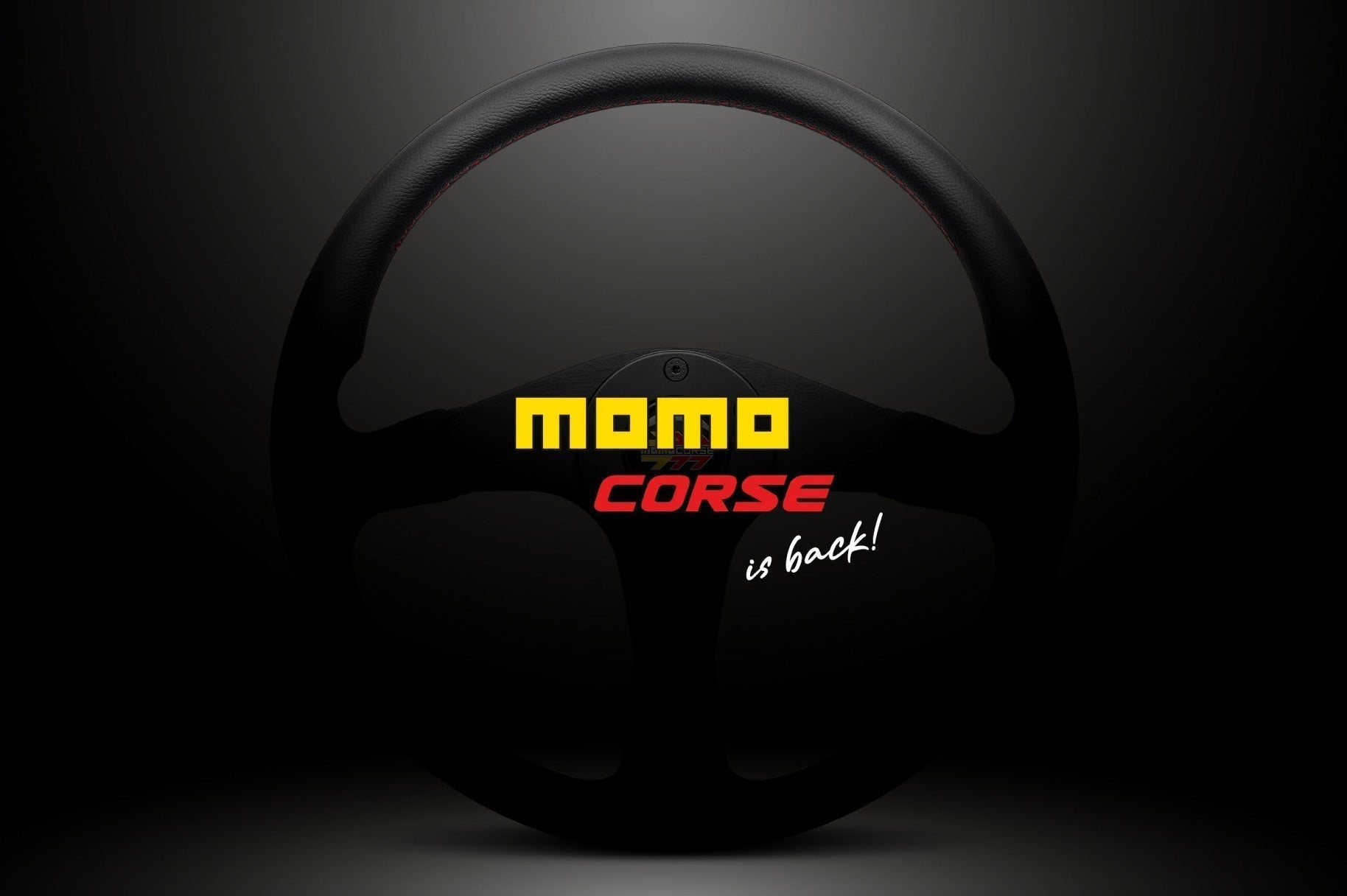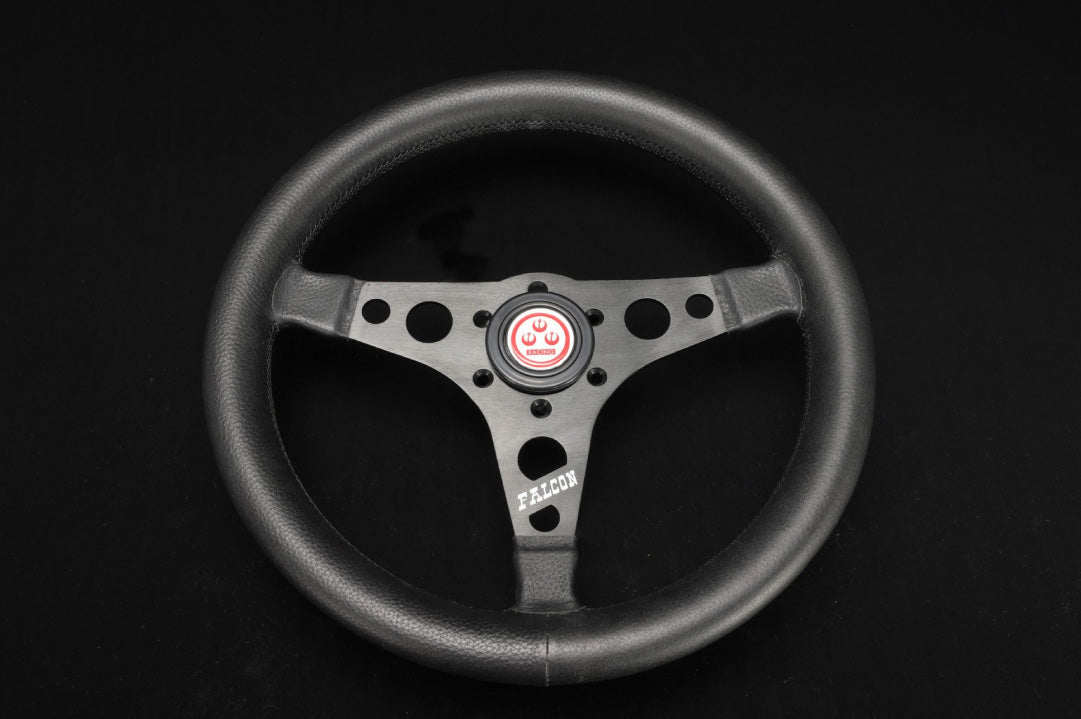Aftermarket steering wheels are popular in motorsport, classic car restoration and vehicle customisation. However, their legality varies depending on the country, whether the car was originally equipped with an airbag and – within the EU – the TÜV/KBA approval system.
This article brings together official information from governments and regulatory bodies across the UK, EU, USA, Australia, Japan and Canada.
Glossary of Terms
- MOT (Ministry of Transport test)
- UK vehicle inspection programme checking roadworthiness, safety and compliance. Airbags, steering and other systems are inspected.
- TÜV (Technischer Überwachungsverein)
- German organisation for safety testing and certification. TÜV approval means a product meets German/EU standards and may come with ABE for road use.
- KBA Number (Kraftfahrt-Bundesamt)
- Unique certification number issued by the German Federal Motor Transport Authority. Indicates part is approved for road use in Germany.
- ABE (Allgemeine Betriebserlaubnis / General Operating Permit)
- Certificate allowing a component to be legally used on public roads in Germany without individual testing.
- ADR (Australian Design Rules)
- Standards governing vehicle safety in Australia, including steering, airbags and structural integrity.
- Airbag-Equipped Vehicle
- Vehicle originally manufactured with a driver or passenger airbag. Replacing the wheel with a non-airbag model is usually illegal.
- Aftermarket Steering Wheel
- Steering wheel not factory-fitted. Legality depends on airbag presence, TÜV/ABE certification and local regulations (MOT, ADR, etc.).
- ABE vs Individual Approval
- ABE: General approval for road use in Germany/EU. Individual Approval: Required if the part lacks ABE/TÜV; may involve inspection/testing.
Steering Wheels and TÜV Approval
Steering wheels vary in their TÜV (Technischer Überwachungsverein) approval status depending on the model and intended use.
TÜV-Approved Steering Wheels
Some models, such as the MOMO Tuner, can be TÜV-approved when paired with specific hubs that carry an ABE (Allgemeine Betriebserlaubnis) or TÜV parts certificate. For example, the MOMO Trek steering wheel, when combined with the MOMO boss kit part number L7004, is TÜV-approved for use on the Porsche 944. Note that only collapsible boss kits are eligible for TÜV approval and this approval applies only to vehicles without airbags equipped.
Non-TÜV-Approved MOMO Steering Wheels
Many classic models – such as the MOMO Prototipo, Mod. 07 and Montecarlo – do not carry TÜV certification. These wheels are often intended for motorsport or aesthetic purposes only and are not legal for road use in Germany or other EU states without additional individual approval.
Key TÜV Details
- Steering wheels approved by TÜV must carry a KBA number (issued by the German Federal Motor Transport Authority).
- Only some steering wheels from Nardi, Sparco and MOMO have this certification.
- A steering wheel alone cannot be TÜV approved. Approval always applies to the combination of steering wheel hub + steering wheel + vehicle model.
TÜV vs MOT
- TÜV approval means the wheel is legal for road use in Germany/EU with the proper setup.
- MOT approval (UK) has separate requirements and does not automatically recognise TÜV certification. For example, if an airbag is removed, the car will fail MOT regardless of TÜV approval.
European Union (EU)
Vehicles Without Airbags: Aftermarket steering wheels may be installed if they comply with EU safety standards: secure attachment, horn operation and no hazardous protrusions. TÜV-approved steering wheels with KBA numbers and ABE certificates are typically permitted. Non-certified wheels require individual approval.
Vehicles With Airbags: Replacing a steering wheel with one that lacks an airbag is generally not permitted under EU law.
United Kingdom
Vehicles Without Airbags: Aftermarket steering wheels are allowed if compliant with MOT standards: securely attached, horn functional and no sharp edges. TÜV certification is not a substitute for MOT compliance.
Vehicles With Airbags: It is illegal to replace a steering wheel with one that disables or removes an airbag. An MOT tester will fail the vehicle.
United States
Vehicles Without Airbags: Aftermarket steering wheels are generally legal if securely installed and the horn remains operational. TÜV or KBA certification has no legal relevance.
Vehicles With Airbags: Federal law prohibits disabling or removing airbags. Installing a non-airbag aftermarket wheel on an airbag-equipped vehicle is illegal and may result in fines, liability or insurance issues.
Australia
Vehicles Without Airbags: Permitted if compliant with ADR 10 (Australian Design Rules for steering). This includes diameter, padding and crash safety standards. TÜV approval alone does not ensure ADR compliance, but may support an engineer’s inspection.
Vehicles With Airbags: Removal or replacement with a non-airbag wheel is not permitted.
Japan
Vehicles Without Airbags: Aftermarket steering wheels can be installed on vehicles without airbags if they comply with Japanese safety standards: diameter, padding and safe design. TÜV certification may support claims of safety, but Japanese authorities rely on domestic standards.
Vehicles With Airbags: Replacing a wheel with no airbag is generally not permitted.
Canada
Vehicles Without Airbags: Aftermarket steering wheels can be installed on vehicles that were not originally equipped with airbags, provided they comply with provincial safety standards. However, modifications must not interfere with the vehicle's compliance with the Canadian Motor Vehicle Safety Standards (CMVSS).
Vehicles With Airbags: It is illegal to remove or disable airbags in vehicles that were originally equipped with them. Such actions are prohibited under federal law and tampering with airbag systems can lead to legal consequences.
Summary of Aftermarket Steering Wheel Legality by Region
| Country | Vehicles Without Airbags | Vehicles With Airbags | TÜV / Compliance Notes |
|---|---|---|---|
| EU | Permitted if compliant | Not permitted | TÜV + KBA required; approval applies to steering wheel + hub + vehicle. Non-certified wheels require individual approval. |
| UK | Permitted if compliant | Not permitted (Will fail MOT) | MOT standards apply; **MOT does not recognise TÜV**; airbag must remain functional. |
| USA | Permitted if compliant | Not permitted (Illegal under Federal Law) | TÜV irrelevant; Federal law prohibits disabling airbags. |
| Australia | Permitted if compliant | Not permitted | Must comply with **ADR 10**; TÜV may support, but domestic standards are binding. |
| Japan | Permitted if compliant | Not permitted | Compliance relies on **domestic safety standards**; TÜV is not binding. |
| Canada | Permitted if compliant | Not permitted (Illegal under Federal Law) | Must comply with provincial safety standards and **CMVSS**; Federal law prohibits disabling airbags. |
Sources
- [Regulation No 114 of the Economic Commission for Europe of the United Nations (UN/ECE)](https://eur-lex.europa.eu/eli/reg/2006/114(2)/oj/eng)
- [UK MOT Inspection Manual – Steering](https://www.gov.uk/guidance/mot-inspection-manual-for-private-passenger-and-light-commercial-vehicles/2-steering)
- [NHTSA – Airbag Systems](https://www.nhtsa.gov/vehicle-safety/air-bags)
- [SA Government – Vehicle Standards and Modifications](https://www.sa.gov.au/topics/driving-and-transport/vehicles/vehicle-standards-and-modifications/cars)
- [MR1457 – Light Vehicle Modifications, South Australia](https://www.sa.gov.au/__data/assets/pdf_file/0017/10727/MR1457-Modification-of-Light-Vehicles-10.20.pdf)
- [Japan Ministry of Land, Infrastructure, Transport and Tourism – Vehicle Modifications](https://www.mlit.go.jp/en/jidosha/index.html)
- [Transport Canada – The Air Bag On-Off Decision](https://tc.canada.ca/en/road-transportation/publications/air-bag-deactivation/air-bag-decision)



